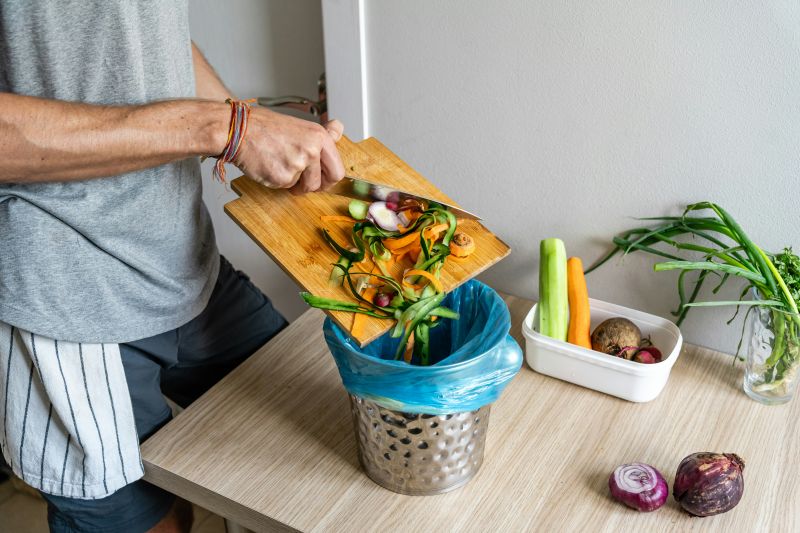Introduction to sustainability and its importance in the food industry
Sustainability is more than just a buzzword; it’s a vital concept shaping the future of our planet. In an era where climate change and environmental concerns dominate discussions, the food industry stands at the forefront of this transformation. The UAE, known for its rich culinary landscape, is embracing eco-friendly practices like never before. From farm to fork, businesses are rethinking how they operate to minimize their impact on the environment while still serving delicious meals. As consumers become increasingly aware of their choices, sustainable dining options are no longer a niche market but rather an essential part of everyday eating in Dubai and beyond. Let’s explore how sustainability is making waves across the UAE’s food scene and what it means for everyone involved—from producers to patrons.
The current state of sustainability in the UAE’s food industry
The UAE’s food industry is undergoing a significant transformation. Sustainability has become a key focus for many businesses, driven by environmental concerns and consumer demand.
Restaurants are beginning to implement eco-friendly practices, from sourcing local ingredients to reducing plastic use. The rise of organic farming initiatives supports this shift toward greener operations.
Additionally, the government plays an active role in promoting sustainability through regulations and incentives aimed at minimizing waste and encouraging responsible sourcing.
However, while progress is evident, challenges persist. Traditional practices still dominate in some areas, making it difficult for innovative solutions to gain traction fully.
Awareness campaigns are helping bridge the gap between consumers and sustainable options. As more people prioritize eco-conscious choices when dining out or shopping for groceries, the momentum towards sustainable food systems continues to build across the nation.
Sustainable practices adopted by restaurants and food businesses in the UAE
Restaurants and food businesses in the UAE are increasingly adopting sustainable practices to reduce their environmental footprint. Many establishments now prioritize locally sourced ingredients, reducing carbon emissions associated with transportation.
Innovative menus that highlight seasonal produce have emerged, showcasing dishes inspired by local flavors while promoting sustainability of food. Eco-friendly restaurants in Dubai are also moving towards plant-based options, catering to a growing audience eager for healthier choices.
Waste reduction techniques are becoming standard. Some eateries repurpose leftover ingredients into new dishes or partner with organizations that redistribute surplus meals to those in need. This approach not only minimizes zero food waste but also fosters community engagement.
Moreover, many restaurants have shifted toward biodegradable packaging and single-use items made from sustainable materials. This transition reflects a broader commitment to eco-friendliness within the dining experience, resonating well with conscious consumers across the region.
Sustainable farming and sourcing of ingredients
Sustainable farming is at the heart of eco-friendly practices in the UAE’s food industry. Local farmers are increasingly adopting organic methods, which prioritize soil health and biodiversity. This shift not only supports the environment but also enhances the quality of produce.
Many restaurants now emphasize sourcing ingredients from nearby farms. This practice reduces transportation emissions while supporting local economies. Diners enjoy fresher options that burst with flavor and nutrients.
Moreover, innovative companies are exploring hydroponics and vertical farming techniques to grow crops indoors. These methods use significantly less water compared to traditional agriculture, making them ideal for arid climates like those found in the UAE.
Incorporating seasonal ingredients into menus encourages sustainability too. It allows chefs to create dishes that reflect local flavors while minimizing environmental impact. With every plate served, they tell a story of conscious choices made right from farm to table.
Reducing food waste through innovative solutions
Reducing food waste is a crucial aspect of sustainability in the food industry. Innovative solutions are emerging to tackle this pressing issue.
One effective approach involves technology that helps restaurants manage inventory more efficiently. Smart systems can track stock levels and expiration dates. This minimizes over-ordering and ensures fresh ingredients are used promptly.
Another exciting initiative is repurposing surplus food into new dishes. Many eco-friendly restaurants in Dubai have started creating menus around leftover ingredients, turning what would be waste into culinary delights.
Collaboration between businesses also plays a key role. Food banks partner with local eateries to redistribute excess meals, ensuring nothing goes to waste while feeding those in need.
Creative composting programs are gaining traction too, converting organic scraps into nutrient-rich soil for urban gardens. This not only reduces landfill contribution but also supports sustainable farming practices within communities.
Consumer awareness and demand for sustainable options
Consumer awareness around sustainability in the food industry has surged in recent years. Diners are more informed than ever about where their food comes from and its environmental impact.
In the UAE, a growing segment of the population actively seeks out eco-friendly restaurants. They prefer establishments that prioritize sustainable practices, such as sourcing local ingredients or offering plant-based options.
Social media plays a pivotal role in this shift. Platforms flooded with influencers showcasing sustainable dining experiences have made it trendy to care about one’s choices.
As consumers demand transparency regarding ingredient sourcing, businesses are responding by highlighting their efforts. Labels indicating organic produce and locally sourced items are becoming commonplace on menus.
This heightened awareness is also driving innovation within the industry. Chefs and restaurateurs are creatively adapting dishes to align with eco-conscious values while still delivering exceptional flavors.
Challenges faced by the industry and potential solutions
The UAE’s food industry is navigating a complex landscape of challenges when it comes to sustainability. High operational costs often deter businesses from investing in eco-friendly practices. Many small restaurants struggle with the initial expenses associated with sustainable sourcing and waste management systems.
Additionally, there’s a lack of regulatory framework supporting sustainability initiatives. Without clear policies, many businesses may hesitate to adopt greener methods.
Consumer education also poses an obstacle. While awareness around sustainability is growing, not all diners prioritize eco-friendly choices when dining out. This creates a gap between supply and demand for sustainable options.
Innovative solutions can bridge these gaps. Collaborations between government bodies and private sectors can foster incentives for green practices. Workshops aimed at educating both consumers and restaurant owners about the benefits of sustainability could further enhance adoption rates across the industry.
The future of sustainability in the UAE’s food industry
The future of sustainability in the UAE’s food industry looks promising as both consumers and businesses embrace eco-friendly practices. With a growing awareness of environmental issues, diners are increasingly seeking out sustainable dining options. This shift is pushing restaurants to prioritize green initiatives.
Innovation will play a crucial role moving forward. Expect more technologies that reduce energy consumption and enhance resource efficiency in kitchens. Collaborations between local farmers and restaurants can strengthen supply chains while promoting fresh, seasonal ingredients.
Government support for sustainable agriculture may also grow, paving the way for advancements in urban farming techniques. As cities expand, vertical farms could become commonplace, providing fresh produce locally and reducing carbon footprints.
Moreover, educational campaigns around zero food waste will empower individuals to make informed choices. The industry is poised for transformation as it adapts to these emerging trends and consumer demands for sustainability of food across the board.
Embracing sustainability
The journey towards sustainability in the UAE’s food industry is gaining momentum. More restaurants and businesses are embracing eco-friendly practices, recognizing the importance of reducing their carbon footprint while also catering to conscious consumers. As sustainable options become more mainstream, it’s clear that both customers and providers share a commitment to better environmental stewardship.
Innovative solutions in farming and ingredient sourcing are paving the way for a resilient future where zero food waste isn’t just an aspiration but a reality. Sustainable methods not only benefit the planet but often enhance flavor profiles, creating delicious dishes that resonate with diners looking for meaningful choices.
Challenges remain—whether it’s navigating regulations or educating consumers—but they present opportunities for growth and collaboration within the industry. With rising awareness around sustainability of food, stakeholders from all sectors can unite to push boundaries further.
As this movement continues to evolve, we can expect Dubai’s dining landscape to reflect these changes profoundly. The shift towards eco-friendly restaurants in Dubai signifies hope—a collective effort toward nurturing our environment while enjoying what our vibrant culinary scene has to offer. Embracing sustainability is not merely an option; it’s becoming essential for shaping tomorrow’s gastronomic experiences.














